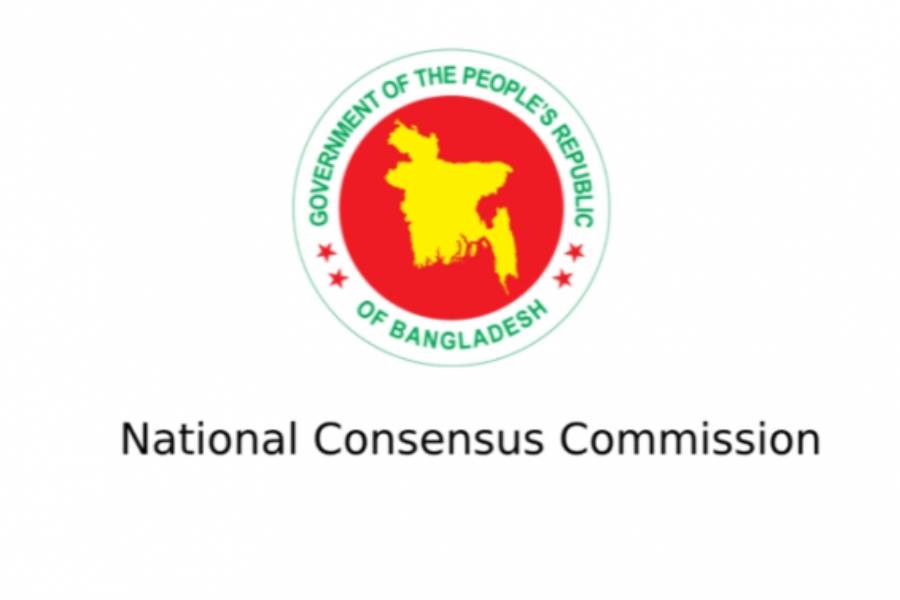Saif
Senior Member
- Messages
- 17,442
- Likes
- 8,381
- Nation

- Residence

- Axis Group


Consensus commission to decide on Chief Adviser appointment amid unresolved disputes
The National Consensus Commission announced on Tuesday that it will make the final decision on appointing the chief adviser to the proposed caretaker government, following a failure among political parties to reach a full consensus. The announcement came after a day-long round of discussions held
Consensus commission to decide on Chief Adviser appointment amid unresolved disputes
FE ONLINE REPORT
Published :
Jul 29, 2025 20:48
Updated :
Jul 29, 2025 20:48

The National Consensus Commission announced on Tuesday that it will make the final decision on appointing the chief adviser to the proposed caretaker government, following a failure among political parties to reach a full consensus.
The announcement came after a day-long round of discussions held at the Foreign Service Academy in Dhaka.
Vice-Chairman of the Commission, Professor Ali Riaz, told reporters that although three-fourths of the political parties agreed to the commission’s proposed reforms to the caretaker government system, some key disagreements remain unresolved.
“The commission has presented a revised and integrated proposal based on feedback from various political parties,” Prof Riaz said.
He noted that while there is no disagreement over the formation of a five-member selection committee, discussions remain deadlocked on whether to implement ranked-choice voting. Several parties, including the BNP, have expressed differing views on this matter.
“The commission will deliberate further on this issue and make a decision,” he added.
Prof Riaz highlighted that a broad consensus was achieved on many points during the initial phase of dialogue held between March and May.
However, some issues have resurfaced during the second phase of discussions.
He said that a comprehensive list of consensus points from the first phase will be circulated to the political parties on Wednesday.
Meanwhile, a draft of the proposed national charter has already been sent to political parties, with instructions to submit their feedback by Wednesday afternoon. Prof Riaz expressed optimism that consensus on the draft would be achieved by 31 July.
Addressing the issue of women's representation in parliament, Prof Riaz said most political parties agree on increasing the number of reserved seats for women to 100. While disagreements remain on the selection method, the current 50 seats will remain in place. He noted significant progress toward consensus on implementing the expansion in phases and expects a formal written agreement by Wednesday.
Tuesday’s discussion also covered provisions regarding the appointment of a non-partisan caretaker government, the Auditor General and Controller, and the establishment of an Ombudsman.
Representatives from 30 political parties, including the Bangladesh Nationalist Party (BNP), Bangladesh Jamaat-e-Islami, and the National Citizens Party (NCP), participated in the talks.
FE ONLINE REPORT
Published :
Jul 29, 2025 20:48
Updated :
Jul 29, 2025 20:48
The National Consensus Commission announced on Tuesday that it will make the final decision on appointing the chief adviser to the proposed caretaker government, following a failure among political parties to reach a full consensus.
The announcement came after a day-long round of discussions held at the Foreign Service Academy in Dhaka.
Vice-Chairman of the Commission, Professor Ali Riaz, told reporters that although three-fourths of the political parties agreed to the commission’s proposed reforms to the caretaker government system, some key disagreements remain unresolved.
“The commission has presented a revised and integrated proposal based on feedback from various political parties,” Prof Riaz said.
He noted that while there is no disagreement over the formation of a five-member selection committee, discussions remain deadlocked on whether to implement ranked-choice voting. Several parties, including the BNP, have expressed differing views on this matter.
“The commission will deliberate further on this issue and make a decision,” he added.
Prof Riaz highlighted that a broad consensus was achieved on many points during the initial phase of dialogue held between March and May.
However, some issues have resurfaced during the second phase of discussions.
He said that a comprehensive list of consensus points from the first phase will be circulated to the political parties on Wednesday.
Meanwhile, a draft of the proposed national charter has already been sent to political parties, with instructions to submit their feedback by Wednesday afternoon. Prof Riaz expressed optimism that consensus on the draft would be achieved by 31 July.
Addressing the issue of women's representation in parliament, Prof Riaz said most political parties agree on increasing the number of reserved seats for women to 100. While disagreements remain on the selection method, the current 50 seats will remain in place. He noted significant progress toward consensus on implementing the expansion in phases and expects a formal written agreement by Wednesday.
Tuesday’s discussion also covered provisions regarding the appointment of a non-partisan caretaker government, the Auditor General and Controller, and the establishment of an Ombudsman.
Representatives from 30 political parties, including the Bangladesh Nationalist Party (BNP), Bangladesh Jamaat-e-Islami, and the National Citizens Party (NCP), participated in the talks.


